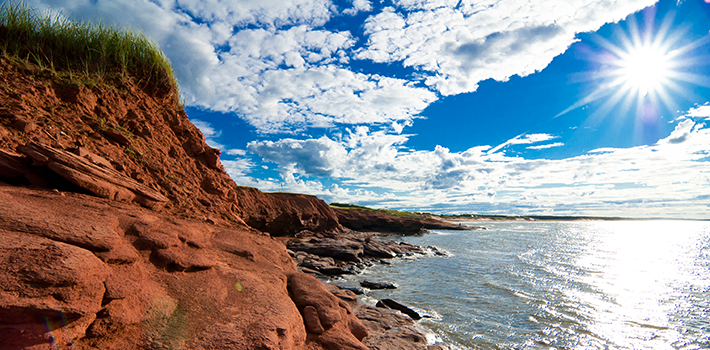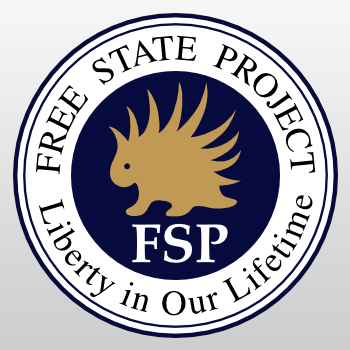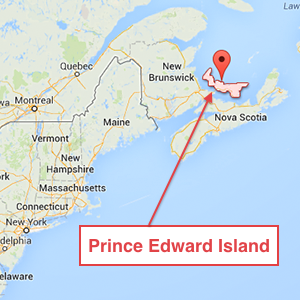Activists Seek 2,000 Individuals for Freedom-Based Community

Prince Edward Island, Canada, home for the Free Province Project. (Wikipedia)
The FPP directors believe they and like-minded individuals can be most effective when they cluster and target their influence in the same jurisdiction. Although in the minority when dispersed, they might then be able to impact electoral decisions and recover lost freedom in the specific territory. The promoters of both projects are overt libertarians, and FSP members have already organized themselves and for years been moving to New Hampshire.
“I first learned about the FPP in early June, when a lady approached me about holding a liberty event in Canada. Since then, I have homesteaded the project as the Facebook page [administrator], started a Twitter account, and created a website,” Giulea tells the PanAm Post.
According to FPP leader Giulea, the potential that this island has for this project lies on two grounds: its electoral size (a small population of 140,000 inhabitants) and its geographic appeal.
“Just a handful of voices can make change on the island,” the young activist explains. “When 25 individuals come together, they can ask to incorporate as a municipality.”
Further, Giulea says that the FPP has a unique location on its side: “The Atlantic Ocean and the Northumberland Strait offer moderate climate all-year round, mild summers and warm winters. The waters in the strait are described as the warmest north of the Carolinas.”
Putting Talk into Practice
Some of the FPP signers have also started to crowdfund the sum necessary for a side project, to acquire their own land and infrastructure. For those interested, the 85-acre lot will only cost US$25,000, eight times lower than ones sold in Ontario, Alberta, and British Columbia.“Movers can be attracted to the housing project with start-up fees as low as $250 for half an acre, which is more than large enough for one to build a cabin and a garden,” Giulea noted.
Some of the highlights of this particular side of the initiative include the development of small solar-powered houses, and communal buildings for laundry, showers, cooking, and dining. The project leaders want to offer low-debt solutions for interested movers.
Giulea, a young entrepreneur, also believes that Canadian immigration laws, friendlier than those in the United States, could provide an easier move for foreigners.
“Given that [the communal side of the FPP] would be a voluntary association of individuals living on the same land, each lot would be under the stewardship of an individual or family, and they would be able to have their own businesses in secondary industries.” He points out that the low cost of living makes PEI great for internet-based businesses. “But most important … we would like children to be raised through unschooling.”
According to members of this project, the purpose is to go back and restore the lost freedom on the island. In 1867, the colony that lived in the island resisted annexation with the new country, although they eventually acceded in 1872 and joined the Canadian confederation. Until 1872, the island had privately issued currency, known as Prince Edward Island dollars.
Besides the FPP and the FSP, Giulea says that there are other similar projects developing in Honduras (ZEDEs), Chile (Galt’s Gulch), and Switzerland (Free State Project – Europe).
New Hampshire Free State Project: The Predecessor
The FSP is an educational organization that aims to inform people of the advantages of living in the state of New Hampshire, and recruit 20,000 liberty-conscious individuals to move there, without concern for religion, age, color, or any other feature.
Free State Project logo. (FSP)
Jason Sorens, the chief FSP creator, explained to the PanAm Post that the Canadian initiative promoted by Giulea is “partly tongue-in-cheek.” However, he believes it expresses a sincerely felt desire by Canadian libertarians to find a home in which they can feel comfortable.
“At this point, Canada is probably freer overall than the United States, but with 50 states, the United States has a larger menu of options for potential migrants looking for the right blend of public policies. We’ve recruited many Canadians into the Free State Project, which is focused on New Hampshire. Whether you like libertarianism or not, you have to admit that it would be instructive to everyone to see it take root and flourish in one place.”
Walter Block on Board with the Strategy
Walter Block, an economist, university professor, and author of Defending the Undefendable, regards the FSP archetype as a fantastic initiative, and has declared himself a big fan.Block explained to the PanAm Post the reasons why he believes the FSP is greatly beneficial for libertarians: “One, it puts us on the map … [When the] number 20,000 is reached, and all signatories are contractually obligated to move to New Hampshire, we may get a libertarian congressman or senator.”
Second, Block says it’s nice to live alongside people who don’t react to everything with the need for a new law — “folk who embrace liberty, as should we all.”

No comments:
Post a Comment